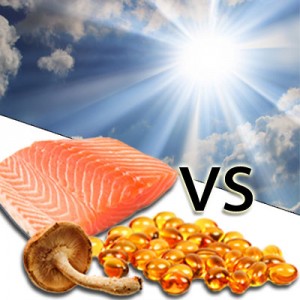Why Does Science Lie to Me? Why One Day It is OK, Next Week It is Not OK...
Science is a Process: Not a Destination

Functions of vitamin D - Do You Take Vitamin D Pills?
What is vitamin D?
Vitamin D is fat-soluble and has two major forms. One is vitamin D2 or ergocalciferol, and the other is vitamin D3 or cholecalciferol. Vitamin D2 is synthesized by plants, whereas vitamin D3 is synthesized by the body. Vitamin D is naturally present in a variety of food sources and dietary supplements and is also produced sunlight. It is reached by the body against UV-B and UV-B from sunlight produces the skin. The liver and kidneys convert can help to produce vitamin D to the active hormone.
What Does Vitamin D Do?
Vitamin D plays multiple roles in the maintenance of organ systems. Examples are:
- Vitamin D helps regulate calcium levels in the blood
- It is also said that vitamin D and the benefits of T-cells of the immune system or immune cell receptors for vitamin D
- Vitamin D is also responsible for the maintenance of normal cell growth and function
- Vitamin D plays because of its anti-inflammatory effect, plays a role in protecting against osteoporosis, hypertension, cancer, type 1 diabetes, psoriasis and many autoimmune diseases, immune
OK, Why Does Scientist Keep Changing My Mind? To Take Vitamin D, and Now, Not to Take Vitamin D?
The issue exposes a rift among experts what is valid proof. On one hand are scientist who insist the only acceptable standard is the randomized clinical trial, which often compares the effects of a medical intervention, such as high vitamin D intake, with those of a placebo. The scientist discarded the observational studies where the researchers compare the health of populations who take vitamin D supplements with those who do not. Seems to be a valid research effort. However, it is not precise and leaves large margins for errors. The "real world" clinical trials are inferior to clinical studies because they rely on observations out in the real world, where it is impossible to control for the variables scientist seek to understand. To compensate for the large margin of errors, they use a large sample size - some vitamin D studies track 50,000 people - and applying statistical techniques correlate.
Bottom Line - Why the Differences?
Some doctors are now taking potshots at the clinical studies. The "real world" does not exist where people take placebos (something like a sugar pill). In nutrition, how can you compensate people in a control group from going out in the sun, where you can absorb vitamin D? It is difficult to single a vitamin with a "cause and effect" because many work in tandem.
Science is a Process!
A single clinical study does not present a conclusive body of knowledge to support any statement. Each study builds on the last study. An analogy is a car is going the right direction (most of the time) and is corrected to stay on the road. New knowledge amends, or completely changes on a case by case basis...
Science is not black or white. It is a mixture of many colors and after many false starts and stops, a consensus is created - for a possible huge change in thinking later! Our world is a good place to use our "common sense"... If you never get out in the sun and do not eat food that is high in vitamin D, perhaps for you, taking a vitamin D supplement may be beneficial...
More Related Topics:
http://hubpages.com/hub/What-is-Human-Ecosystem
http://hubpages.com/hub/Why-Do-I-Smell-Flowers-You-Smell-Urine
http://hubpages.com/hub/Possible-Relief-from-Multiple-Sclerosis








